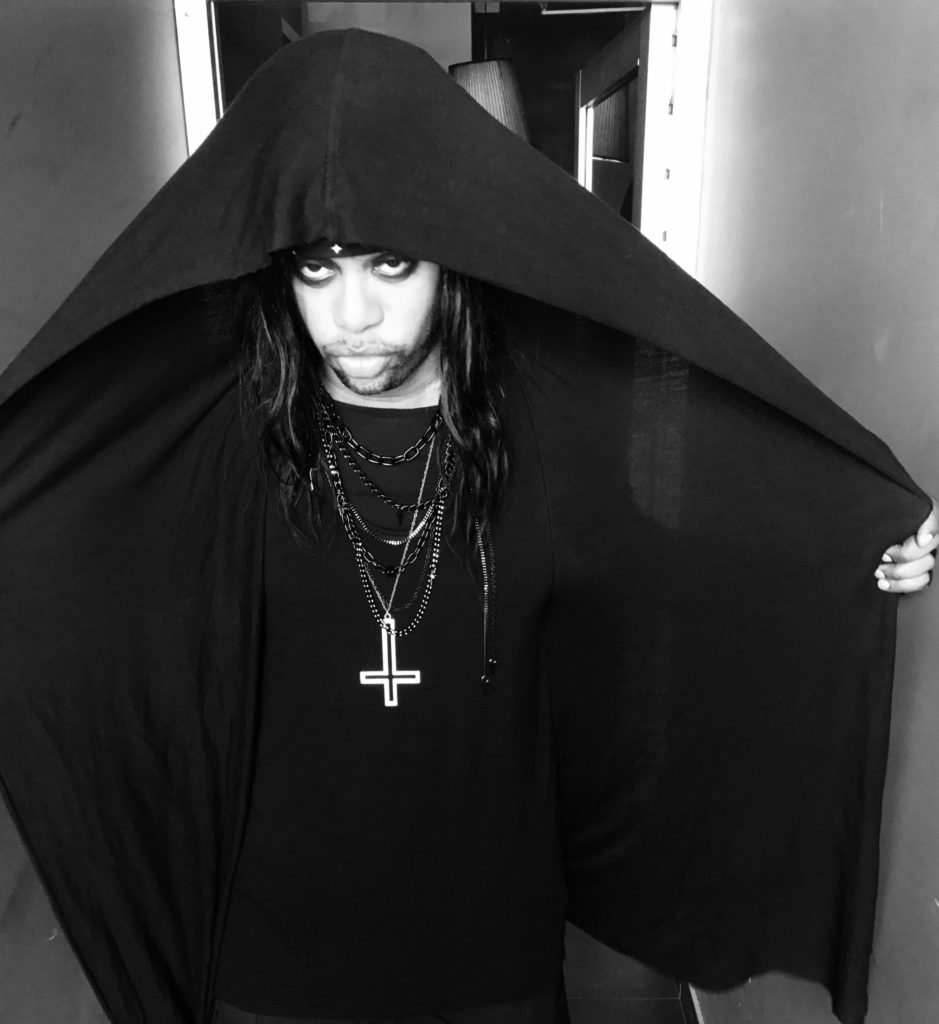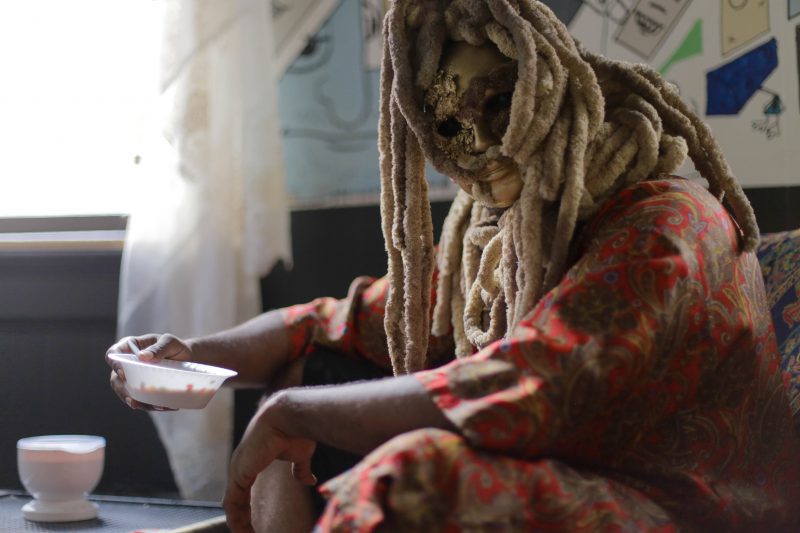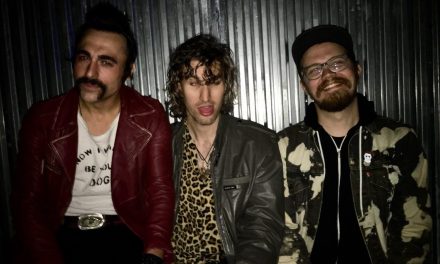Despite hailing from Los Angeles The Silversun Pickups are a regular presence in the area, regularly playing Upstate Concert Hall and headlining the 2013 Tulip Fest.
The band’s first two full-length albums “Carnavas” and “Swoon” produced dramatic, angsty singles that see regular play on WEQX and other alternative rock stations around the area. Since those two career-defining albums the band that is regularly compared to The Smashing Pumpkins appeared with each successive album to be searching for a new sound, a new formula. They’ve introduced a heavier electronic sound into the mix and experimented with song structure.
On their latest record “Widow’s Weeds” they adopt an earthy, almost placid, sound with the help of superstar rock producer Butch Vig.
Fans who have followed the band since the early aughts have likely matured along with the them, something that isn’t lost on lead singer Brian Aubert who recently completed treatment for a depression-fueled alcohol addiction. The father of a young son took the time to talk to us about the band’s wild creative process, working with Butch Vig, the link between anxiety, depression and creativity and fatherhood, ahead of the band’s show at Upstate Concert Hall on Saturday.
The Collaborative: Thanks for taking the time. I have to say it’s interesting to think about how your albums served as a soundtrack to various parts of my life.
Brian Aubert: Now that we’ve been around for so long it’s something that comes up. It’s just different for some people the way our records have moved into these different spots with people’s lives. I don’t want to joke about or belittle an album because they can mean so much to someone. As time goes on you really see it and that’s incredible. We’re really trying to recalibrate our minds to include it, but we’ll never take ourselves very seriously.
CO: I was interested to see you worked with Butch Vig (producer of Nivana’s “Nevermind”, Smashing Pumpkins “Gish” “Siamese Dream”, L7 “Bricks are Heavy”) on the new album. I imagine some of the albums he produced were fairly influential to you . I know I feel that way. How did you decide to work with him and what was the process like?
BA: We thought about him for a while. For the most part this band operates on dumb luck all the time. Most of the people we work with are people we run into or meet. We kind of see that as the Silversun Circus tumbleweed blows along. We collect more people and some stick. I’ve known Butch from the neighborhood for awhile. We’ve thought about working with him in the past but what was coming out of our minds didn’t quite seem appropriate; it didn’t feel like the right time. Butch is in Garbage and they called me in to do a song. I had such a wonderful experience with Butch and Shirley that he was the first person I thought of when it was time to start making a new record.
We always like to shake it up, we work with somebody for a couple records and then turn up the juice and see what shakes loose. So the band and management was talking about Butch and I thought ‘Butch sounds great but does Butch know?’ So it turns out the only person that didn’t know this was happening was Butch, So I thought ‘Oh I should ask him so I texted him, ‘Hey Butch wanna make a record this summer?’ Her texted back ‘Sounds fun!’
We had to work within his parameters which were that he had a tour with Garbage in the summer so we recorded in a session before the tour broke for a bit and came back for another session after the tour.
Yes, clearly he worked on all these major albums and that was not lost on us. But in the back of our minds we were thinking it goes two ways–what if he’s somebody who has done it all and in his mind he’s got his way and that is it? That’s not something we are really interested in. What we loved about him is that he is insanely playful and he has this current mindset where he is always tinkering, working, doing a score. He’s the drummer for Garbage which is a vital and functioning band. So he is always moving forward.
So he shows up and he’s a legend and has this amazing legacy but what was more impressive was to see how fast he works–it is just lightning fast and he knows he wants to accomplish certain things.
CO: What kinds of things did you do in the studio that you thought might throw him off?
BA: With us, things just go. We don’t think about how things should go. We do not calculate. We don’t set out to do 7-minute songs. I don’t mean to be coy when I say I don’t know what the chorus is. I just don’t know what it is. It’s always just accidental.
With us anything that sounds odd, that takes a moment to understand or could sound like a mistake is what we really like. We want surprises. I find that albums where you are not able to get it in the first listen tend to be the ones that really grow and mean something to you.
Having a game plan maybe is honest to some people but we would be a nightmare for a group of people trying to get us to do anything. We we just don’t know how.
This one song called “We Are Chameleons” has one of my favorite moments. We were working with Butch and there was one of those things where you could make it just traditionally guitar chordy but I love what Jeff Tweedy says: “A lot of the time making a record is building a tree, putting ornaments on it and then removing the tree.” So we remove the stuff that would normally carry the song and enhance the backgroundy stuff. What happens with us in the studio is the things that would normally be considered an accident, that you’d have to fix, is the kind of stuff we love.
CO: You’ve talked about taking time before this album to deal with your addiction to alcohol. You’ve also spoken about mental health. Do you find your music to be a helpful place to deal with those struggles?
BA: Sometimes. Really it’s one of those chicken and egg scenarios. Are you more in tune with these things everybody is going through are you more sensitive because you are lucky enough to engage in this sort of creative deep diving? Or do you do it because you are more sensitive to it? By being in this sort of band made me more aware? Being in this place and dealing with all of these things is not an opportunity everyone has, so does it force it to the forefront? Would they be more aware if they had the time? I don’t know the answer. But I suspect it is a bit of both.
I find making the record, working on something, is almost meditative. If you’re writing about things and moved by internal personal things, and not everybody does that, but if that is what you’re pulling from when you’re actually making the record there is a calmness to it because it is such a present-tense moment.
When we’re making an album, that is all we’re doing and there is something absolutely cathartic about it. You only notice it when you stop working on it. When we were working on record the record with Butch, we had one session before Garbage went on tour and then we came back to it at the end of the year.
So during that break I could feel that anxiety and all the stuff I use as tools during recording going nowhere. Now that I’m not working on it all of that the deep diving what am I doing now? What now? What is this now? And sometimes you wonder what’s more important, the record or your life?
With how I write records sometimes I’m not in control of it. It’s always going to change. There will always be different things. Hopefully it will lead to something better. You realize that some profound moments in your life are going to be caused by you and some of them are not. Some of them are out of your control. Some will land in your lap. So some of my time off was helping me navigate the stuff I was causing to myself and to the people I was close to. To get it under control to live a healthier existence so that I can deal with the profound things that are not in my control.
The distinction between the issues facing artistic types and “normal” people isn’t all that different. I’ve seen that hanging with the parents group for my kid. I see the same set of issues happening but “normal” people just don’t have access to that deep diving. I think it’s important to get people speaking about it. I think art is helpful, fandom is helpful, being interested in things is helpful. People who are interested in things are called nerds but your a nerd because you love something? What can you love that doesn’t make you nerdy? I don’t see how fandom is harmful.
CO: As a music fan and father to a young child, I have to ask, how are you introducing your son to music? I feel a bit guilty sometimes that I’ve pushed some of my more niche tastes on my daughter.
BA: My son’s favorite band is The Knife. He thinks Karen and Olaf are the Avengers. He wants to dress up as The Knife. We watch their videos all the time. He thinks it’s the coolest thing in the world too.
I think the access kids have to music now that radio isn’t determining what they listen to, MTV isn’t, there is not one core thing so they are all picking and choosing everything. My son is so into Queen. He loves Live AID and he doesn’t care that it happened 40 years ago. There is something about having a kid that is so profound and full of joy and melancholy. I do worry sometimes if I’m damaging him but at the end of the day as long as they feel safe and feel love who cares what they listen to or how strict you are with food? None of that matters.
CO: So finally, what should fans expect on the current tour? You’ve got such a wide catalog to draw from now. Will it be heavy on the new record?
BA: We like to weave it all in. We have to be careful because our songs are so long. The jovial part of having a new record out for us is weaving the new songs with the old songs. It personally makes us happy and it helps you with new songs. You have much more muscle memory playing them side by side where you can eventually lock in a new song but it also feels like it strengthens the new songs for us.
The songs don’t feel old. Its something we’ve been thinking about– what the older records really mean now that we are adults. To listen to this at a certain age, it changes things. We’ve been trying to work in new-record songs with songs people do know from radio. We don’t want to be snobby people. That people want to hear our songs that they know is cool. We’ve also been trying to weave in some deep dive cuts. But we’ve got long songs so we can’t talk so much. Our onstage banter is limited, I find myself telling the crowd ‘please forgive me if I don’t talk much’ then we can replace that banter with one more song. So let’s play the song.
Silversun Pickups play Upstate Concert Hall on Saturday with I Don’t Know How But They Found Me. Tickets are $30.





